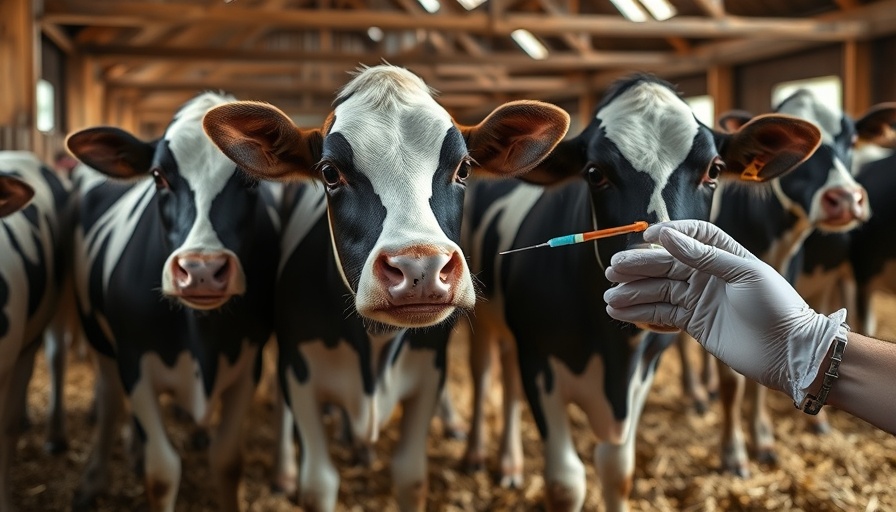
Foot and Mouth Disease: A Rising Economic Crisis in South Africa
The recent outbreak of foot and mouth disease (FMD) in South Africa is being described by industry leaders as an economic crisis rather than merely an animal health issue. With the Red Meat Producers Organization (RPO) at the forefront of this discussion, it's reported that the failure to access certified abattoirs for slaughtering, even when vaccination programs are underway, is severely impacting farmers financially. Frikkie Mare from the RPO emphasized that the upcoming season, typically fruitful for sales, is now crippled by halted animal movements, leaving farmers with mounting losses.
Addressing Market Access Amidst a Health Crisis
The vaccination drive, while recognized as crucial for animal health, reveals significant gaps in market access in affected regions. The North West province, for example, faces obstacles due to the lack of registered abattoirs for post-vaccination slaughter, as noted by Dr. Langa Madyibi, the Director of Veterinary Services. His insight illustrates the delicate balance necessary between addressing animal health and restoring economic viability for farmers in the area. Confirming cases drive vaccination efforts, but without functional slaughter facilities, financial recovery remains elusive for farmers.
The Bigger Picture: Economic Impacts of Animal Disease Outbreaks
The economic implications of FMD extend beyond agriculture, affecting the broader South African economy. As the government prepares to vaccinate over 900,000 animals, concerns about potential beef shortages and rising prices loom large. This outbreak intersects with ongoing challenges within the country, including the aftermath of COVID-19, escalating unemployment rates, and stringent government policies aimed at economic recovery. Market reactions and consumer sentiment also hinge on how effectively these intertwined issues are managed.
Public Health Concerns Versus Economic Realities
While the government has reassured consumers that FMD poses no threat to human health, the socio-economic fabric is under strain. The public's confidence in both food safety and economic stability is vital. With the spotlight on recovering lost revenue for farmers while ensuring public health standards remain high, the administration's ability to navigate this dual narrative will be critical for long-term stability.
Future Insights: Managing Vulnerabilities in South Africa's Food Supply
This crisis presents a pivotal moment for South Africa to fortify its agricultural policies against future outbreaks. The need for thorough vaccination strategies is evident, but so is the importance of bolstering infrastructure to ensure market access for all farmers. This situation raises broader questions about agricultural sustainability, food security, and the prioritization of resource allocation to combat diseases that threaten economic frameworks.
Call to Action: Engaging Stakeholders for Resilient Solutions
Your engagement is crucial as we move forward through this crisis. Advocacy for better strategies and support systems for farmers impacted by animal disease outbreaks resonates throughout various sectors. Consider reaching out to local representatives, participating in discussions around agricultural policies, and promoting awareness about the intertwined nature of animal health and economic stability in South Africa.
 Add Row
Add Row  Add
Add 




Write A Comment